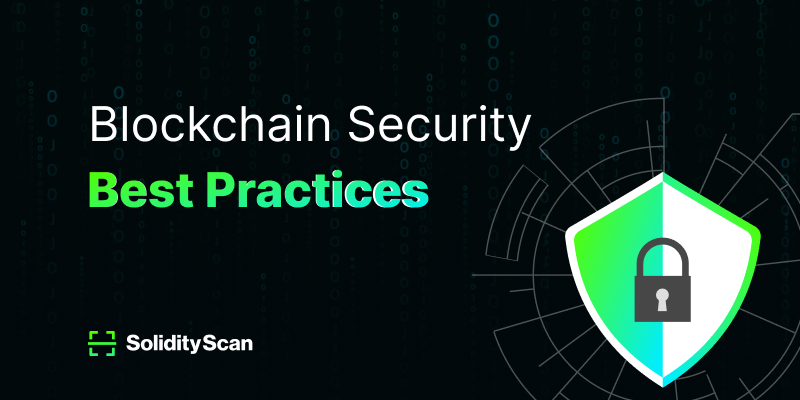
Blockchain technology, with its decentralised nature and cryptographic principles, has revolutionised the way we handle transactions and store data. However, as with any technology, it’s not immune to security threats. This article delves into the best practices for bolstering blockchain security, ensuring data integrity, and safeguarding sensitive information.
The Balancing Act: Data Integrity and Privacy in Blockchain
Data integrity is the cornerstone of blockchain security. It’s the assurance that the data hasn’t been tampered with and remains accurate and consistent. On the other hand, privacy is about keeping certain data, like personally identifiable information (PII), confidential. Striking a balance between transparency and privacy is crucial to maintain user trust and comply with data protection regulations.
The Three Pillars of Data Integrity in Blockchain
- Harnessing Consensus Mechanisms: Consensus mechanisms are the backbone of blockchain networks. They ensure that all participants agree on the validity of transactions. The use of hash functions, which produce a unique output for each unique input, makes any data tampering immediately detectable.
- Monitoring Blockchain Networks: Regular monitoring of blockchain networks is essential to detect and respond promptly to any potential security incidents. Advanced monitoring tools can enhance an organization’s ability to protect data integrity.
- Implementing Encryption and Cryptographic Techniques: Encryption is a crucial tool for protecting data integrity. It helps mitigate the risks of data tampering and maintain the trust and reliability of blockchain systems.
Privacy Protectors: Best Practices for Safeguarding Privacy in Blockchain
- Utilizing Private and Permissioned Blockchains: These blockchains require participants to obtain permission to join the network and perform transactions. This enables organizations to establish granular control over data access and maintain the privacy of sensitive information.
- Implementing Encryption for Sensitive Data: By encrypting data before storing it on the blockchain, organizations can ensure that only authorized parties with the decryption keys can access the information.
- Leveraging Zero-Knowledge Proofs: These proofs allow one party to prove to another that they know a value, without conveying any information apart from the fact they know the value. This helps validate the integrity of transactions while preserving the privacy of sensitive information.
Smart Contracts: Ensuring Security and Mitigating Risks
Smart contracts are self-executing agreements that automatically execute predefined terms and conditions when certain conditions are met. However, vulnerabilities in smart contracts can lead to security breaches. Therefore, it’s crucial to conduct regular audits and use secure coding practices to mitigate potential risks.
The Infrastructure Imperative: Securing Blockchain Network Infrastructure
Securing the underlying infrastructure of a blockchain network is crucial to maintaining the overall security and integrity of the system. This includes:
- Implementing Robust Access Controls: Using strong, unique passwords, enabling multi-factor authentication (MFA), and employing role-based access controls (RBAC) can prevent unauthorized access to the blockchain network.
- Protecting Against DDoS Attacks: Implementing measures like rate limiting, IP filtering, and deploying DDoS protection services can mitigate the impact of DDoS attacks.
- Conducting Regular Security Audits and Penetration Testing: These assessments are essential for identifying vulnerabilities and weaknesses in the blockchain network infrastructure.
In conclusion, while blockchain technology offers immense potential for data integrity and privacy, it’s not immune to all risks. By following these best practices for blockchain security, organizations can enhance data integrity, protect privacy, and build trust in their blockchain networks. Embracing these measures will enable businesses to leverage the full potential of blockchain technology while safeguarding their valuable data.
FAQs
1. Are blockchain networks completely secure?
While blockchain networks provide robust security features, they are not invulnerable. Implementing best practices and proactive security measures is crucial to minimise risks and ensure the integrity of the system.
2. What is the role of encryption in blockchain security?
Encryption plays a vital role in securing blockchain networks. It helps protect data at rest and in transit, preventing unauthorised access and ensuring confidentiality.
3. How do consensus mechanisms contribute to data integrity in blockchain?
Consensus mechanisms ensure that all participants agree on the validity of transactions. The use of hash functions makes any data tampering immediately detectable.
4. What are some common security challenges in blockchain?
Common security challenges include 51% attacks, Sybil attacks, and vulnerabilities in smart contracts. Addressing these challenges requires a combination of technical measures and adherence to best practices.
5. Why is data privacy important in blockchain?
While blockchain provides transparency, certain data, such as personally identifiable information, should remain private. Protecting data privacy is crucial to comply with regulations and maintaining user trust
